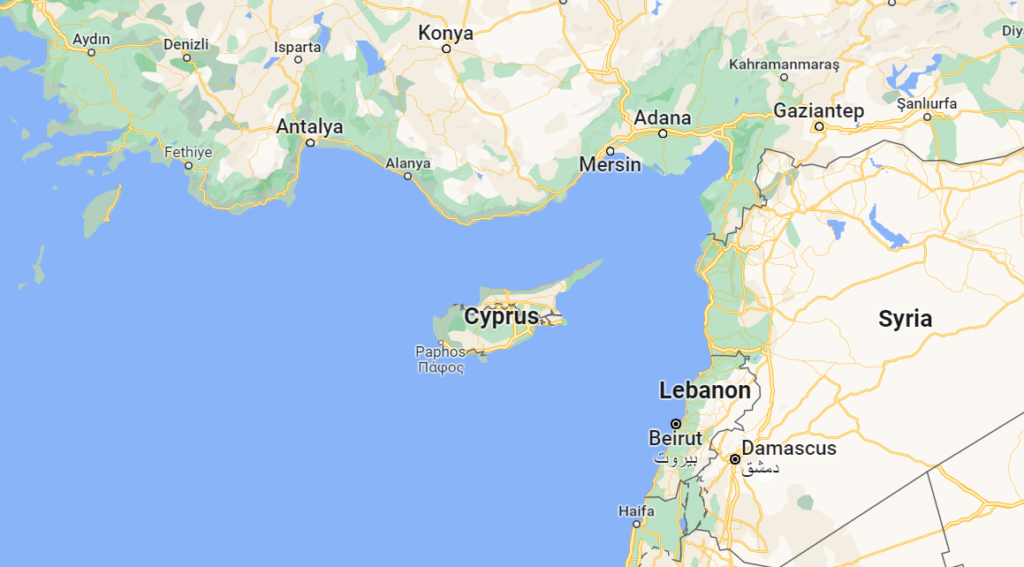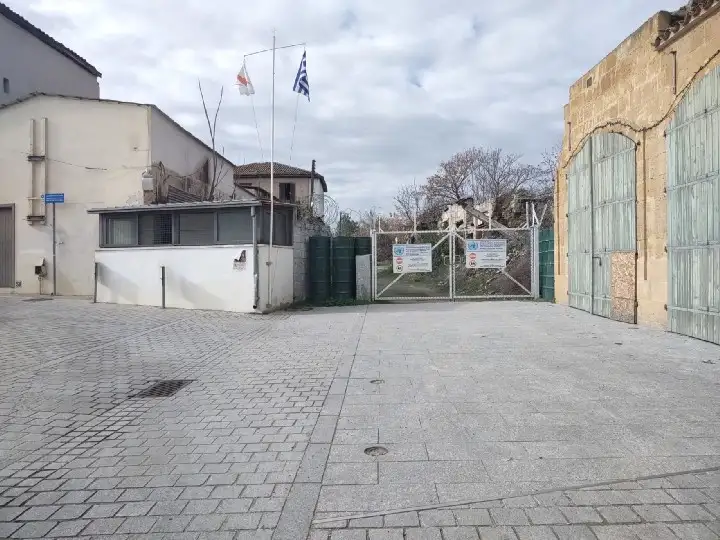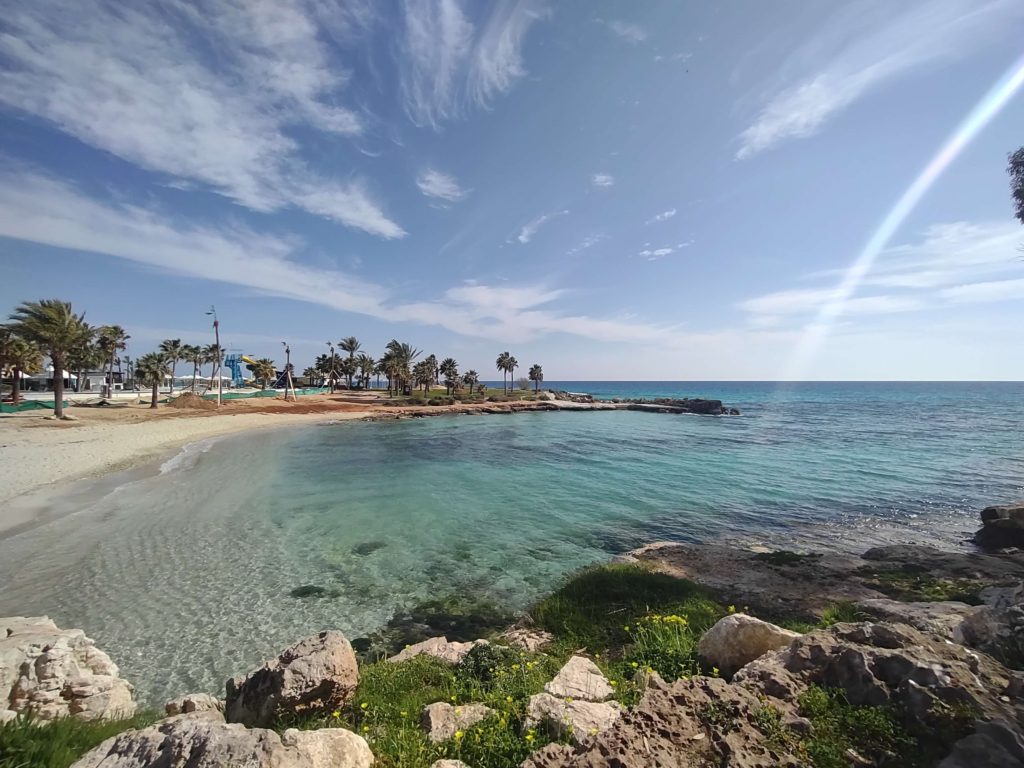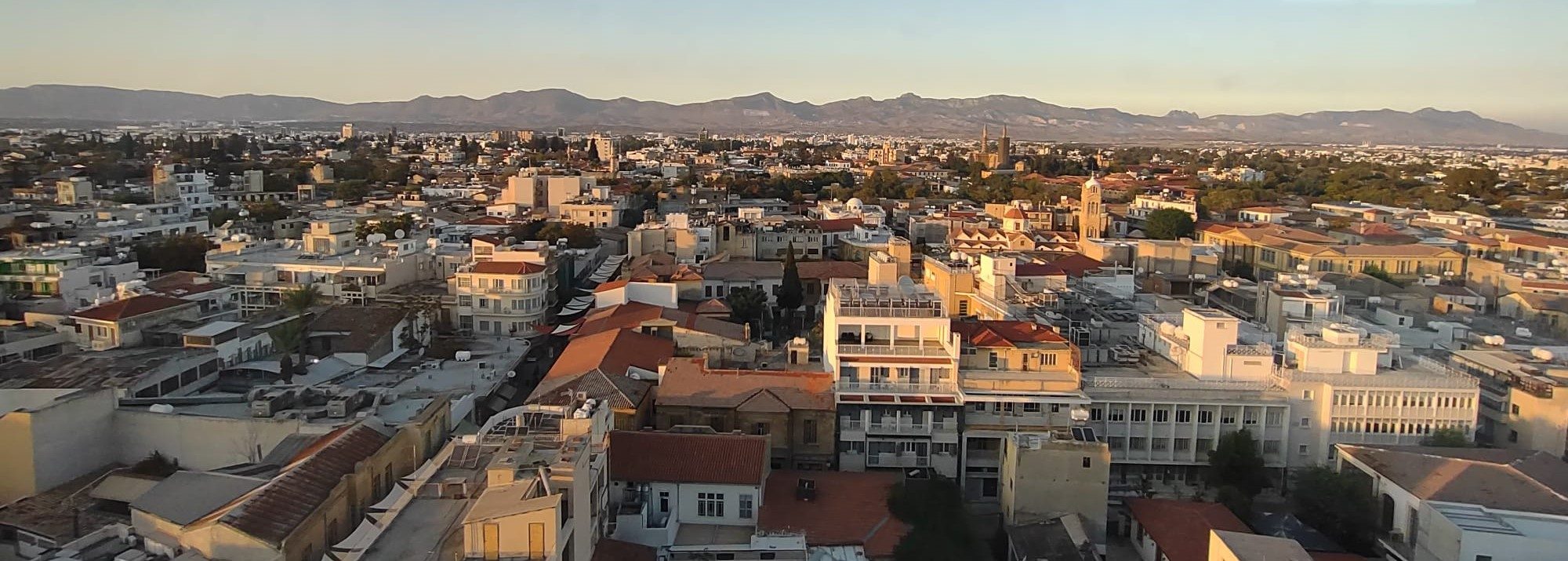Complex geopolitical situation and international life
The easternmost border of the European Union is a 9,000 km squared island, only 80km south of Turkey and 100 km west of Syria.
In the middle between Europe and Asia, Cyprus is home to 1.2 million people belonging to different communities: Greek Cypriots, Turkish Cypriots, Maronites, Armenians, Latins, and many others call this place home.

Following centuries of foreign domination and colonization, the Republic of Cyprus became independent in 1960. Clashes, extremisms, one coup, one invasion, led to the division of the island in 1974. One third of the island, in the north, is currently a de facto state, a territory not controlled by the Republic, in which the laws of the EU are not effective. It declared itself “Turkish Republic of Northern Cyprus” in 1983, no country officially recognize it besides Turkey.
Decades of negotiations have not been successful yet, but we still hope in a united island.
Moreover, the U.K., former colonizer of Cyprus, never left the island. And two British Overseas Territories are located here, hosting Sovereign British Bases.
Some locals have negative feelings towards the other “side”, and never crossed the green line [the UN buffer zone that divides the two sides of the country and makes Nicosia the last divided capital in the world]. Some other locals are very active and work together for a unified island.
North of the buffer zone people speak Turkish Cypriot, south of the buffer zone Greek Cypriot, both different from the main languages.

Confused? You are not the only one.
This is not the end: Cyprus is the EU Country with the highest number of first-time asylum applications. Refugee camps are overcrowded, and there are huge delays in processing the asylum applications.
The island is also considered a tax haven, and is the base of many financial and IT companies.
And how to forget the Golden Passport scheme that granted to many international billionaires (and some alleged criminals) Cypriot citizenship in exchange for investments?
Such foreign presence makes Cyprus the second EU Country for number of foreign residents, after Luxembourg, with almost 20% of foreign residents. True numbers are probably higher though, considering students, volunteers and workers that do not take up residence.

With this melting pot, many would expect Cyprus to be a dangerous location. All the contrary! Cyprus is one of the safest countries you can step your feet on.
And do I need to say that the island is beautiful? In the same day you can ski in Troodos and swim in Paphos. You can visit natural parks, white sand beaches, forests, waterfalls, Ancient historical sites, medieval castles, Christian churches, Ottoman mosques.
It will be difficult for you to get bored in this little pearl of the Mediterranean sea.
